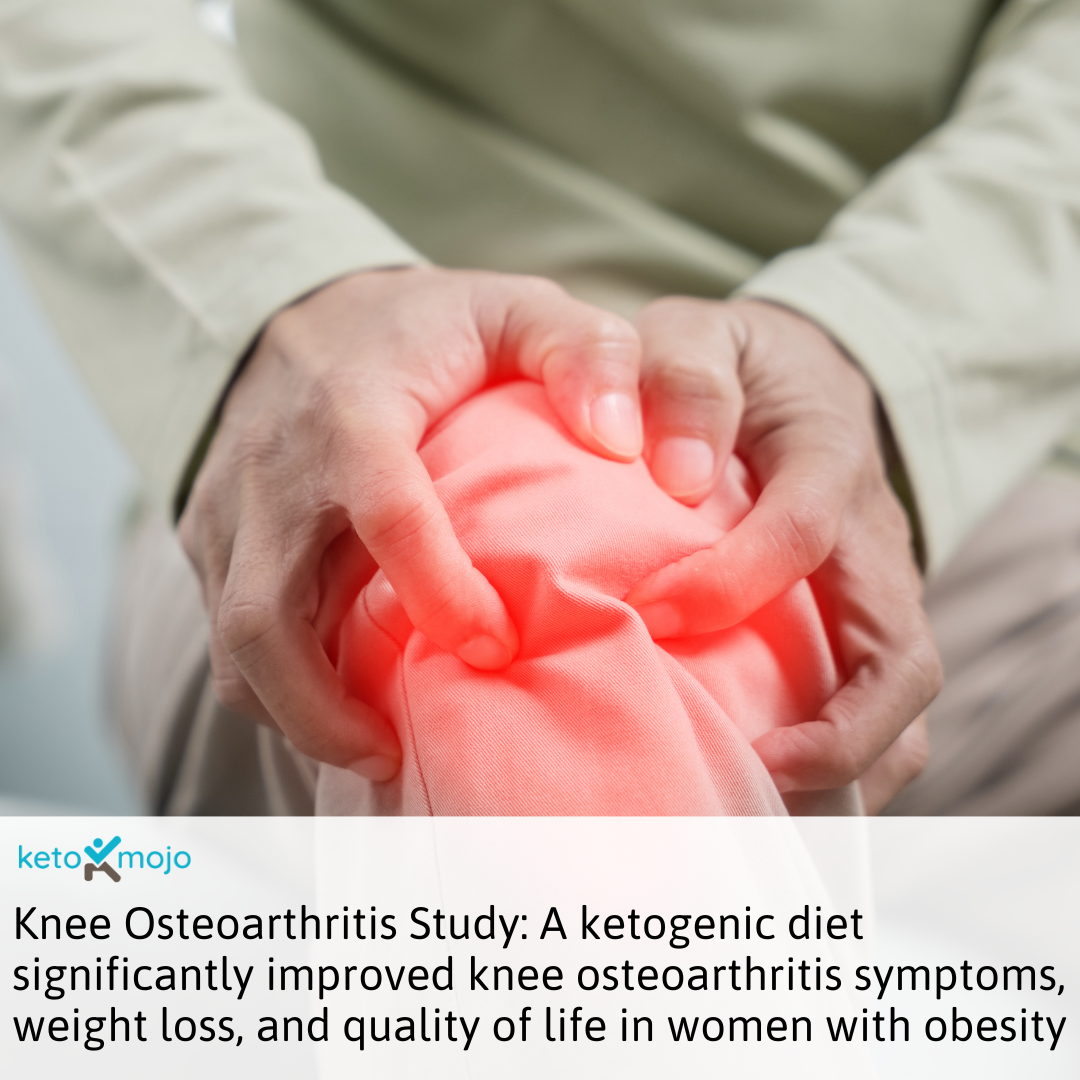General Health
Efficacy, Safety, and Tolerability of a Very Low-Calorie Ketogenic Diet in Women with Obesity and Symptomatic Knee Osteoarthritis: A Pilot Interventional Study

Obesity is a significant risk factor for knee osteoarthritis (OA), and weight loss is critical for OA management.
This pilot study evaluated the effects of a 20-week very low-calorie ketogenic diet (VLCKD) on weight loss, knee OA symptoms, and quality of life in women with obesity.
A total of 20 women with a BMI ≥ 30 kg/m² and symptomatic knee OA were enrolled; 16 completed the study. The VLCKD included an 8-week ketogenic phase followed by a gradual reintroduction of carbohydrates over 12 weeks. Body mass index (BMI), knee function (WOMAC Index), quality of life (EQ-5D), and overall health (SF-36) were measured at baseline (T0), week 8 (T8), and week 20 (T20).
Key Findings:
Significant weight loss: from baseline BMI 40.0 ± 4.8 kg/m² to 37.5 ± 4.5 at T4, 36.3 ± 4.6 at T8, and 34.8 ± 4.8 at T20 (p < 0.001 for all comparisons).
Improved knee function: WOMAC score improved from 43.6 ± 16.9 at baseline to 30.2 ± 12.8 at T4 (p = 0.005), 24.7 ± 10.6 at T8 (p = 0.001), and 24.8 ± 15.9 at T20 (p = 0.005). The reduction in BMI was strongly correlated with improvements in WOMAC scores.
Enhanced quality of life: significant improvements were observed in EQ-5D and SF-36 scores, correlating with BMI reduction.
Tolerability and safety: no major adverse effects were reported, though 2 participants discontinued due to mild side effects.
In summary, a 20-week VLCKD effectively reduced weight and improved knee function and quality of life in women with obesity and knee OA. These findings support further research to confirm the role of ketogenic diets in managing OA symptoms and obesity-related comorbidities.



